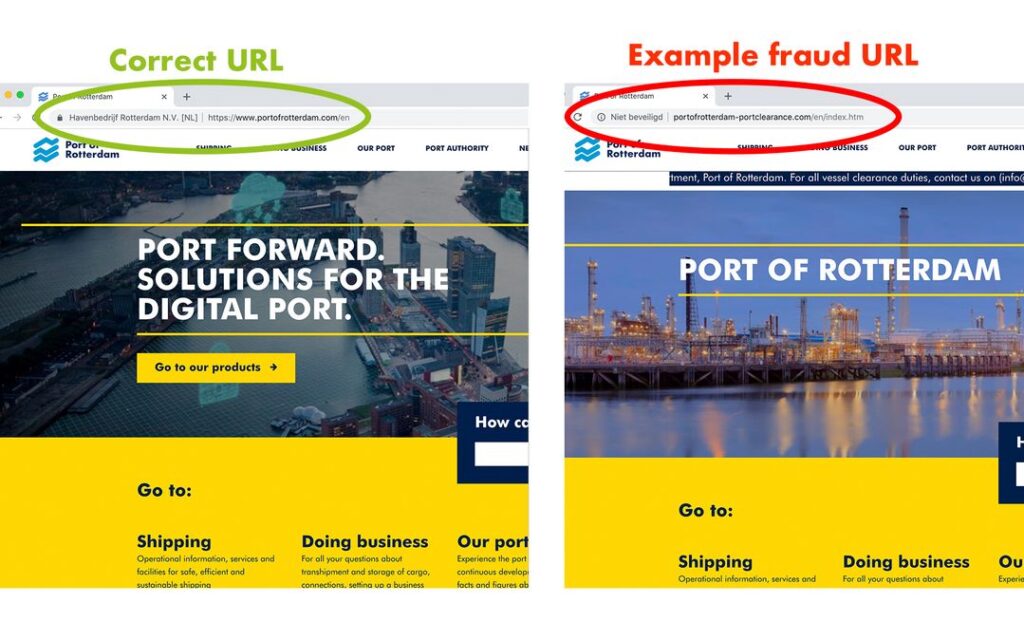The Dutch National Port Security Reporting Point for security incidents recently warned against criminals who ‘spoof’ or fake legitimate websites. This is the counterfeiting of websites or e-mail addresses for fraudulent activities. The criminals are mainly looking for money and possibly data from companies doing business in the port.
At Port of Rotterdam several reports have been received from counterfeit port-related websites. A recent example is the use of fake websites for offering and selling non-existing storage capacities and stocks of raw materials and materials in terminals.
[smlsubform prepend=”GET THE SAFETY4SEA IN YOUR INBOX!” showname=false emailtxt=”” emailholder=”Enter your email address” showsubmit=true submittxt=”Submit” jsthanks=false thankyou=”Thank you for subscribing to our mailing list”]
These websites do not have SSL certificates ( https: // lock ), they have language errors and some site elements are missing. However, the presence of a valid certificate does not offer a 100% guarantee, because criminals can also apply for certificates themselves.
For this reason, operators should always check:
- Is the URL correct?
- Are there any typos or misspellings in the web address at first sight? Often you overlook that because, for example, one letter has been changed. This often makes criminals aware of simulating similarities with the real website;
- Legitimate companies are always easy to find in Google with contact details etc;
- The presence of valid data on the relevant website, such as: Physical address; Phone numbers; VAT / Chamber of Commerce number; IBAN number.
In fact, the Port of Rotterdam recently alarmed its website users about criminals that often set up fake copies of its website in order to attract existing or potential clients into disclosing confidential information or paying fraudulent invoices. Sometimes, the fake sites are an exact copy of the Port of Rotterdam website and are difficult to distinguish from the original site.
Port of Rotterdam Authority suggests users to always check whether they are navigating within www.portofrotterdam.com and be extra cautious when being directed to the right website from an email or other channel.





























































